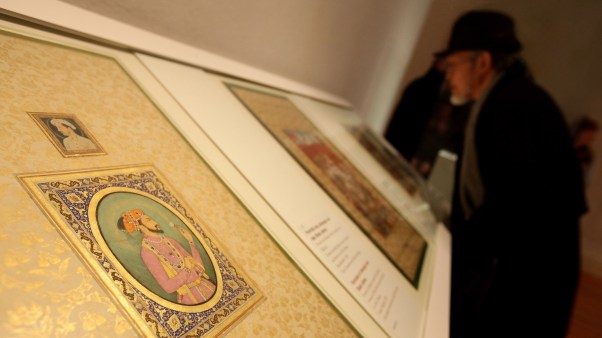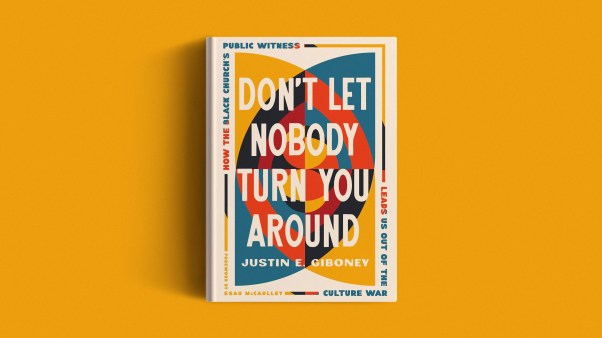I am passionate about being anti-romantic.
Romanticism is a form of idealism, a philosophy that emphasizes the world of the mind over the material world, the spiritual over the earthly. The opposite of romanticism is, essentially, realism.
Today we tend to associate the word romantic within the narrow subject of love and even more narrowly, romantic love. Although romanticism is much broader than that and can exert its subtle and unbiblical influence in many areas of life, examining the harmful effects of romanticism in love can be instructive for how we view every aspect of life. At least, that's what happened to me when I read for the first time that masterpiece of anti-romantic literature, Madame Bovary by Gustave Flaubert. The novel portrays how Emma Bovary's perpetual boredom with her ordinary life in a small town with a husband who loves her—a life nothing like the exciting and dramatic adventures she's read about in romances!—leads into a downward spiral.
In the excerpt below, taken from my memoir, Booked: Literature in the Soul of Me, I write about discovering my need to overcome my harmful, romantic worldview as a young newlywed. Of course, as it is often said, marriage is a metaphor, and this passage is about more than marriage.
It's about how unrealistic expectations about any aspect of our lives—our relationships, our work, the church, even our very selves—can rob us of the infinite and varied joys to be found in the everyday world, not despite the undeniable flaws and perfections to be found there, but because of them.
I was two months shy of my 20th birthday. We had both come out of painful relationships in which we had been the injured parties. I was still in college, and neither of us had stable employment. He was on the road travelling with the band. I was waitressing at Howard Johnson's the hours I was off from school. "We can be poor together or poor apart," we thought, rather romantically.
We chose together.
Our first apartment was a little one bedroom unit added onto a stately old home that the owner had turned into an antique shop. It sat snugly in the hollow of a suburban village about a half hour from my school. The apartment was equipped with an antique porcelain stove, one large kitchen/dining/living area, and lovely hardwood floors throughout. Most of the windows looked out into a large yard that backed up to a low stone wall. Our landlady ran the antique shop and lived upstairs with her bachelor son, an artist who flitted back and forth between there and New York City. The landlady was about five feet tall with silver hair and bright lipstick and wore lacy vintage dresses, usually black. She had told us no pets were allowed, but easily gave in when I brought an English Springer Spaniel home "just to try out for the weekend." Yes, our marriage had a romantic, storybook beginning.
I know what's supposed to happen next in a good story is some terrible or devastating conflict: the discovery that one of us had a rare cancer, maybe, or the reemergence of an old flame whose heart was full of wicked intent. But that's not what happened, although we did argue a lot about the dog. What happened is that we returned from our short honeymoon in time for me to start the spring semester, the term I opened the pages of Madame Bovary.
Unfortunately, Emma's education, particularly the books she read, whetted her appetite for romance and not life. When she meets Charles—and then Leon, followed by Rodolphe—she mistakes excitement for love.
Having returned to her father's home from the convent, having no other prospects for the future before her, and possessing no experience but that which she'd gained vicariously through books, Emma readily assents to her father's desire for her to marry the widowed doctor, Charles Bovary, who'd cared for his broken leg. Charles, however, is nothing like the dashing heroes of Emma's books. Charles, in fact, was awkward and dull and, as it turns out, not a highly skilled doctor. But he adored Emma.
Emma thinks perhaps the feeling is mutual. This is quickly shown not to be so, however. "Before marriage," the narrator says,
she thought herself in love; but since the happiness that should have followed her failed to come, she must, she thought, have been mistaken. And Emma tried to find out what one meant exactly in life by the words bliss, passion, ecstasy, that had seemed to her so beautiful in books.
But it is not only Charles that disappoints her. Everything about her new life is disappointing. Nothing in the world away from her father's country farm is like the world of her books. Even her new name, "Madame Bovary," is second hand: because Charles is a widower she is the second Madame Bovary, or rather, the third because Charles's mother still hovers. Even during the honeymoon, which Emma tries to enjoy, she wonders,
Why could not she lean over balconies in Swiss chalets, or enshrine her melancholy in a Scotch cottage, with a husband dressed in a black velvet coat with long tails, and thin shoes, a pointed hat and frills?…. And yet, in accord with theories she believed right, she wanted to experience love with him. By moonlight in the garden she recited all the passionate rhymes she knew by heart, and, sighing, sang to him many melancholy adagios; but she found herself as calm after this as before, and Charles seemed neither more amorous, nor more moved.
If she were able to express her discontentment perhaps she might have overcome it. Indeed she thinks that if Charles could only understand her, even if only in part, her heart might yield "a sudden bounty." But she does not have the words to express her yearnings and disappointments. Unreleased, they simmer. As the intimacy of married life with her husband deepens, "the greater became the gulf that kept them apart." For intimacy with Charles reveals that the doctor who successfully treated her father's bone fracture—the occasion of Emma and Charles' meeting—is, in fact, a man, and a rather ordinary, dull, and flawed one at that.
The fact that no man is able to satisfy Emma reveals that even if Charles had been a bit less, or even a lot less, dull, it would not have been enough. Emma's discovery that her husband is a real person, not just an image, is a discovery most of us must undertake. And it's a discovery that is made not just once and for all, but—particularly within the context of marriage—over and over, sometimes on a daily basis, as I had to learn for myself.









